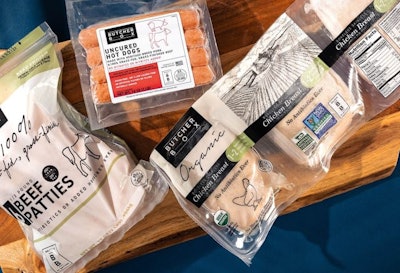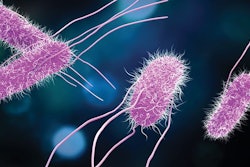
Meat and poultry alternatives like plant-based protein products and cultivated meats may be viewed as favorable to some consumers, but ButcherBox CEO Mike Salguero says he is skeptical of the sustainability of those products from an environmental standpoint.
Salguero was a recent guest on Food Tank’s Food Talk podcast, hosted by Food Tank President Danielle Nierenberg.
ButcherBox, a company co-founded by Salguero, delivers meat, poultry and seafood – specifically grass-fed beef, free-range organic chicken, crate-free pork and wild-caught seafood. The company boasts that its products are more sustainable than that of the traditional animal protein industries by emphasizing proper treatment of the animals, the farmers and the environment.
Salguero told Nierenberg that he doesn’t “believe in a world where everyone’s eating non-meat.” He also said he wasn’t convinced that they alternative proteins being developed or marketed are actually sustainable for the environment.
Salguero noted that plant-based proteins are typically produced with fertilized crops, adding: “Which, if you read any of the research on carbon sequestration, that’s not good. That’s a disaster as well for the environment,” he said.
He also talked about cultivated meats, which have not yet been federally approved for consumption, referring to it as “Frankenmeat.”
He said ButcherBox has had scientists look at such proteins, and said the concept “is pretty interesting.” However, he also has concerns about that type of protein production.
“You basically take stem cells and put them into a reactor, and six days later, with the right conditions and a lot of electricity, you can have meat,” said Salguero. “It is happening. It’s very expensive. The biggest problem with that is electricity. So when you actually look at the carbon emissions versus a conventionally raised animal, they’re worse.”
Salguero, however, noted that those cultivated meats could be more environmentally sustainable if the laboratories where they were produced used solar energy.

















